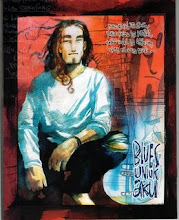OCT 24 — By all accounts, Datuk Seri Najib Razak tabled a solid Budget 2010, one that attempts to cut the deficit while ensuring all sectors get their due.
There were some nice touches — particularly for students and expatriates, their families, farmers, office workers, and a few others. Even heroes have their allowances raised five times. No one was left out.
Even the corrupt will get their due, when the prime minister announced with the formation of 14 Special Corruption Sessions Courts and four special Corruption Appeal High Courts.
Currently, there are only two special courts in Kuala Lumpur and two more in Shah Alam, according to Najib, who said the anti-graft measures are part of the National Key Result Areas (NKRAs).
Najib, who is also finance minister, said efforts to enhance the image of the Malaysian Anti-Corruption Commission (MACC) would be carried out. These include organising international conferences on combating corruption, awareness campaigns through the mass media, as well as promoting better public relations.
This is really where money is going down the drain, Mr Prime Minister.
The MACC’s image is now dirtier than drain water, after Teoh Beng Hock’s death and the probe into suspected abuse of funds in the Selangor government. Even before the MACC came into being, its predecessor the Anti-Corruption Agency (ACA) never had great success in the courts or its investigations.
Two names come to mind. Tan Sri Eric Chia and Tan Sri Kasitah Gaddam. Both acquitted despite the claims by former prime minister Tun Abdullah Ahmad Badawi of taking on the Herculean task of cleaning up the Stygian stables of corruption.
The MACC has not done much in this regard. And creating more courts or boosting the image of the anti-graft body will not bear any fruit.
All the MACC has to do is seriously investigate cases like the suspect wealth and opulence shown by the likes of former Selangor mentri besar Datuk Seri Khir Toyo, with his travels and mansion. Look into past cases of abuse like the Port Klang Free Zone (PKFZ) or simply pore through Auditor-General’s annual reports.
As for the government, the easiest method is to be more transparent in its purchases and contracts, rather than the usual method of having closed tenders or negotiated contracts. The Penang state government has had success with this since the Pakatan Rakyat government took over in March 2008.
Chief Minister Lim Guan Eng was commended for the action by Transparency International in their annual report this year. Of course, the DAP secretary-general can still do better as time goes by. Perhaps by not wasting money on an anti-ISA billboard.
If he says the state’s resources are limited, he should spend it wisely rather than using it to proclaim a stance that will not benefit the people of Penang. Especially something no different than the countless billboards proclaiming 1 Malaysia. People First. Performance Now.
All we see are the billboards. Not much by way of “people first” or “performance now”.
And if Najib’s idea is to set up more courts for offenders, then he is putting the cart before the horse. The idea is to prevent corruption, to eliminate it even before it gets to the courts.
Not spend money on further improving confidence and public perception on such efforts or, as he puts it, measures that “will ensure that the country is better ranked in the Corruption Perception Index.
Because the easiest and cheapest way to do that, is just to be transparent.
Krisis Istana: Tak Mahu Caro, Diam Juga Nasihat? -Nik Aziz
15 tahun yang lalu










0 ulasan:
Catat Ulasan